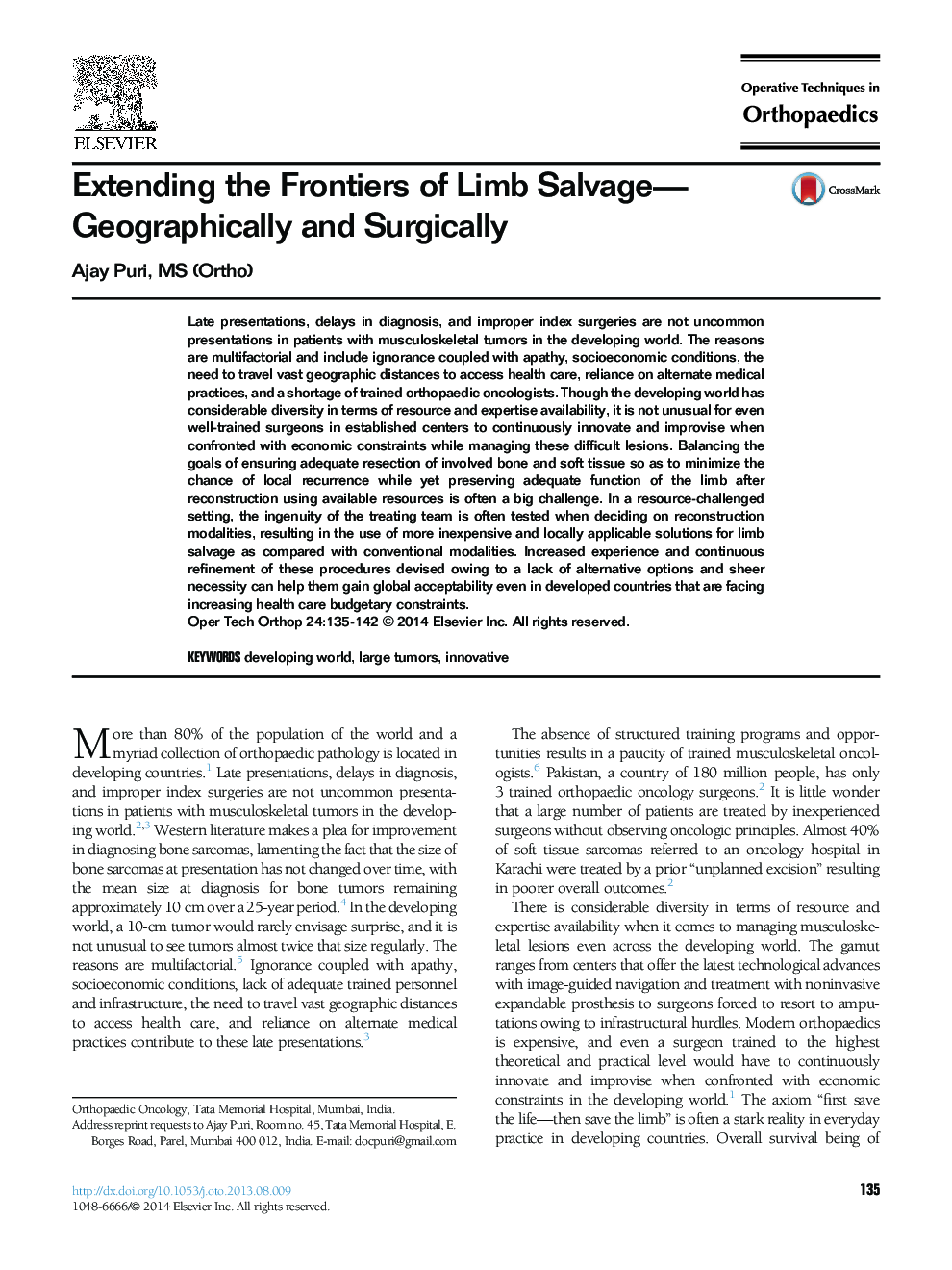| کد مقاله | کد نشریه | سال انتشار | مقاله انگلیسی | نسخه تمام متن |
|---|---|---|---|---|
| 4078808 | 1267327 | 2014 | 8 صفحه PDF | دانلود رایگان |
Late presentations, delays in diagnosis, and improper index surgeries are not uncommon presentations in patients with musculoskeletal tumors in the developing world. The reasons are multifactorial and include ignorance coupled with apathy, socioeconomic conditions, the need to travel vast geographic distances to access health care, reliance on alternate medical practices, and a shortage of trained orthopaedic oncologists. Though the developing world has considerable diversity in terms of resource and expertise availability, it is not unusual for even well-trained surgeons in established centers to continuously innovate and improvise when confronted with economic constraints while managing these difficult lesions. Balancing the goals of ensuring adequate resection of involved bone and soft tissue so as to minimize the chance of local recurrence while yet preserving adequate function of the limb after reconstruction using available resources is often a big challenge. In a resource-challenged setting, the ingenuity of the treating team is often tested when deciding on reconstruction modalities, resulting in the use of more inexpensive and locally applicable solutions for limb salvage as compared with conventional modalities. Increased experience and continuous refinement of these procedures devised owing to a lack of alternative options and sheer necessity can help them gain global acceptability even in developed countries that are facing increasing health care budgetary constraints.
Journal: Operative Techniques in Orthopaedics - Volume 24, Issue 2, June 2014, Pages 135–142
